Innovators of the future to compete in Venture Catalyst Challenge final
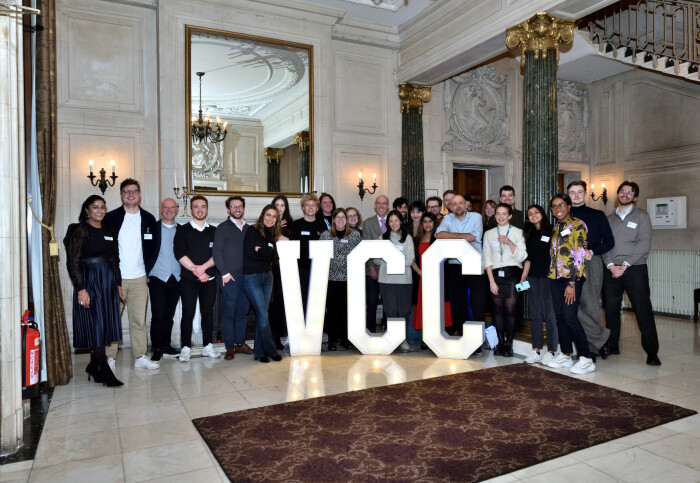
Five of Imperial’s most promising new startups will compete for a share of a £100,000 prize fund in the final of the Venture Catalyst Challenge 2024.
The Venture Catalyst Challenge (VCC) is Imperial’s flagship entrepreneurial competition for Imperial students, alumni and early career researchers, helping startups to develop their innovative ideas for commercialisation.
This year’s five finalists are developing businesses to tackle key issues in areas such as drug development, reducing surgery waiting times, and the transition to net zero emissions.
- Members of our Imperial community and the wider public are invited to see the innovators of the future at the Grand Final on Thursday 11 April. You can get a free ticket to the event here.
VCC takes 25 teams through a 3-month programme of 1-2-1 coaching, meetings with experts, workshops and pitch training, before the five finalists compete for a Grand Prize of £20,000. The VCC’s total £100,000 prize fund is the biggest prize fund of any UK university entrepreneurship competition.
The competition has acted as a successful launchpad for dozens of early-stage startups, with past participants and winners including Notpla (winners of the Earthshot Prize 2022), Breathe Battery (who are now partnering with Volvo), and FA Bio (who have raised more than £5m in investment).
This year’s finalists are split into five categories: AI & Robotics, Creative & Consumer, Digital & Finance, Energy & Environment, and Health & Wellbeing.
The finalists are:
AI & Robotics (sponsored by Terra): AminoAnalytica
Pharmaceuticals companies invest a lot of time and money into screening thousands of proteins in laboratories in the hope of finding one that has a chance of being used in a phase-one clinical trial. AminoAnalytica, co-founded by Abhi Rajendran, Adam Wu, and Matteo Peluso, has developed a potential solution to improve this process.
The team’s virtual screening software uses deep learning tools to predict protein properties, acting as a ‘crystal ball’ for pharma companies. It is hoped that the software could speed up protein-based drug development.
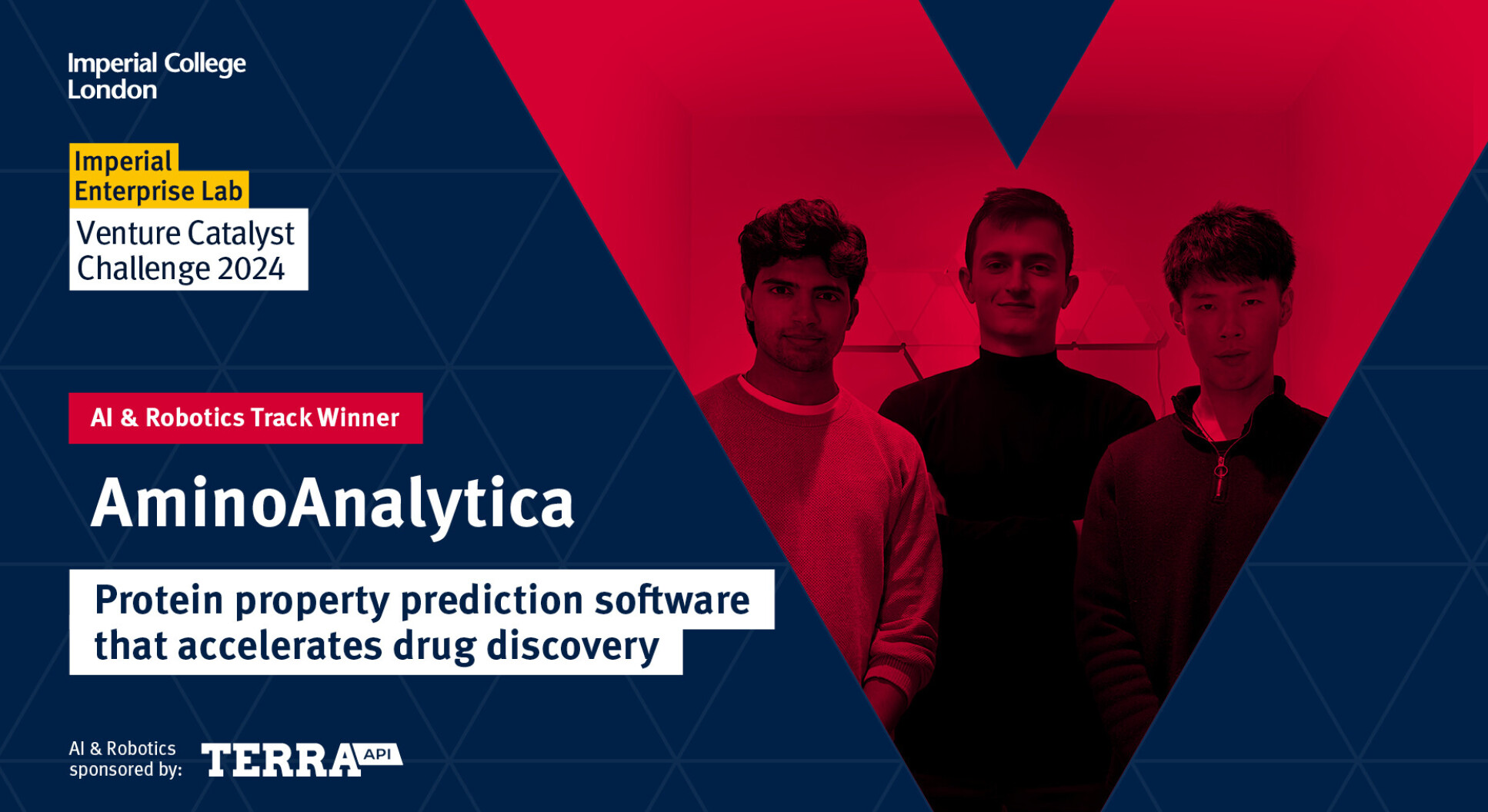
Creative & Consumer (sponsored by Imperial College London): Vox Aeris
Vox Aeris is developing alternative air purification methods to bring more efficient, sustainable, and adoptable air quality solutions into our daily lives. Leveraging the power of air and sound with their patent pending technology, they aim to bring clean air to the majority who would otherwise not address this issue.
Led by Selene Sari, Vox Aeris is working to produce pollution-reducing technology that can be seamlessly integrated into a home environment, such as a dual-purpose device which works as an air purifier and a speaker.
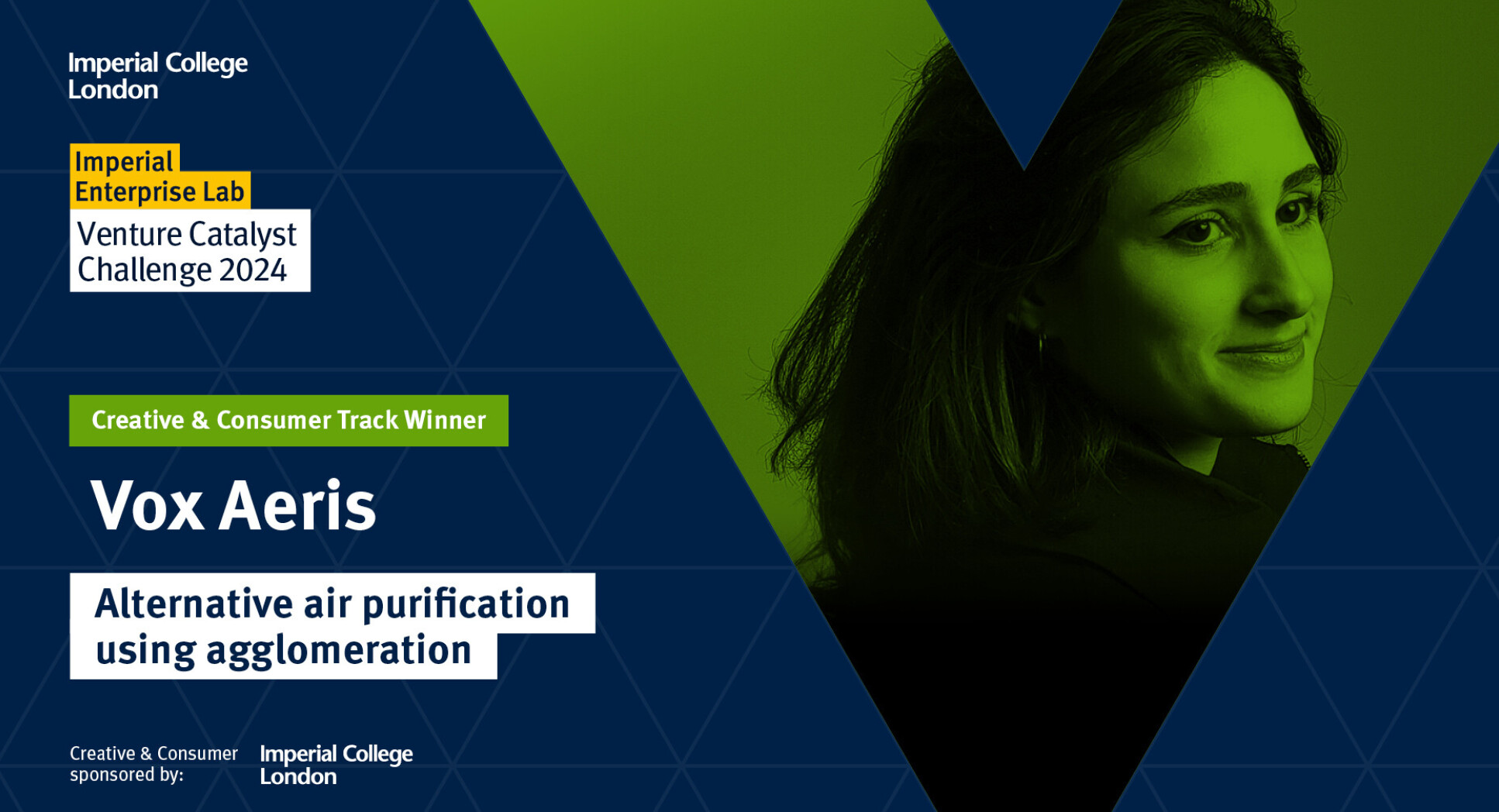
Digital & Finance (sponsored by Santander Universities): SurgeryAI
SurgeryAI is an artificial intelligence tool that uses data from surgical operating theatres to predict procedure times and produce more efficient schedules, eliminating avoidable delays caused by scheduling gaps and underutilised operating rooms.
Led by co-founders Natalie Cooke and Radovan Vitek, SurgeryAI has been designed to help reduce the number of missed opportunities for surgical treatment and cut down long NHS waiting lists.
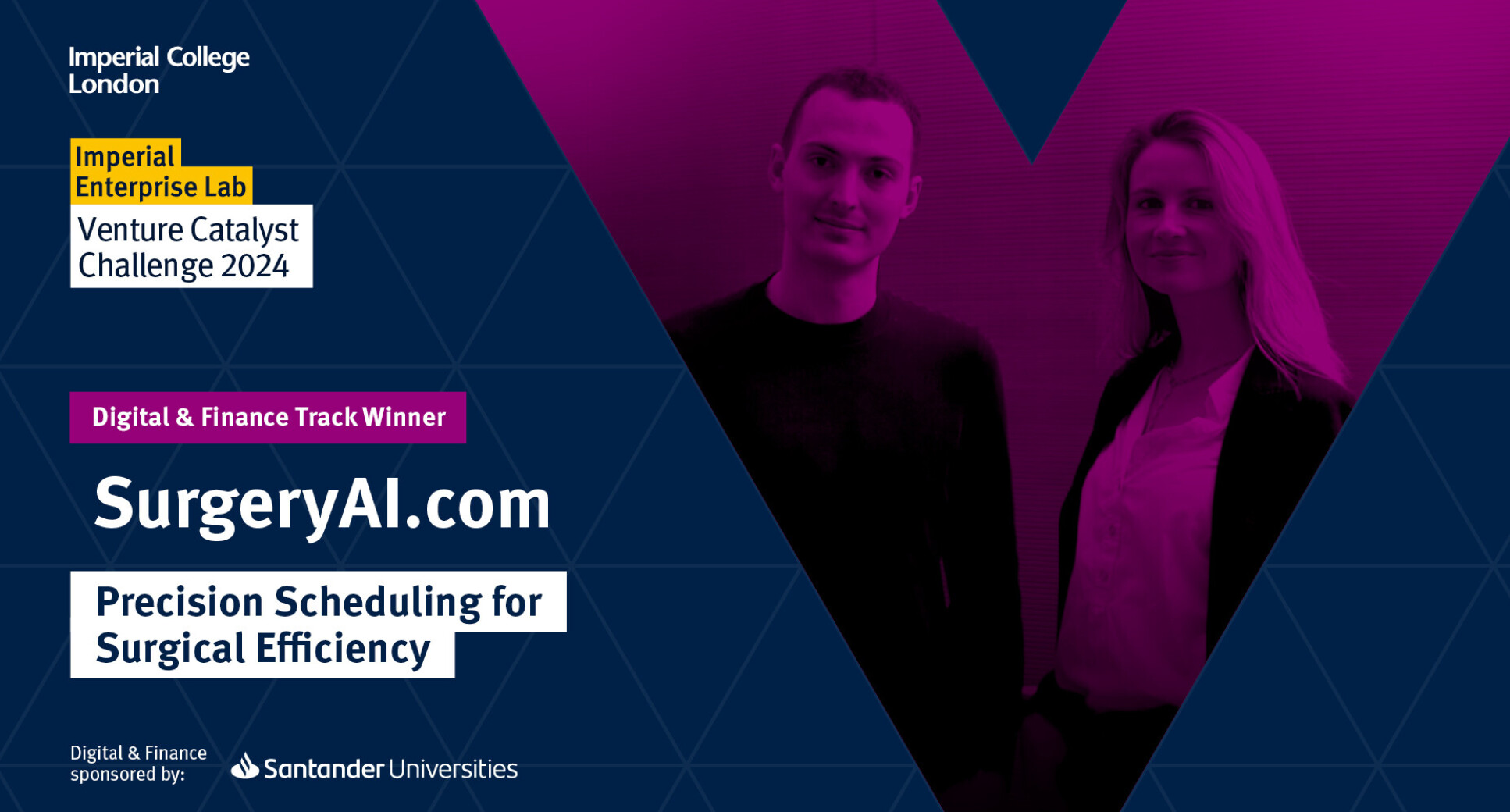
Energy & Environment (sponsored by Undaunted): Cyanoskin
Cyanoskin is an innovative ‘living paint’ that turns buildings into carbon dioxide-absorbing structures, with the aim of reducing emissions and addressing urban pollution. The team, led by co-founders Antoinette Nothomb and Emma Money, hope that their product will provide an efficient and cost-effective tool for capturing CO2.
Once the paint has been applied to a building, the owners will be provided with an app for live updates on how much carbon their painted walls are absorbing.
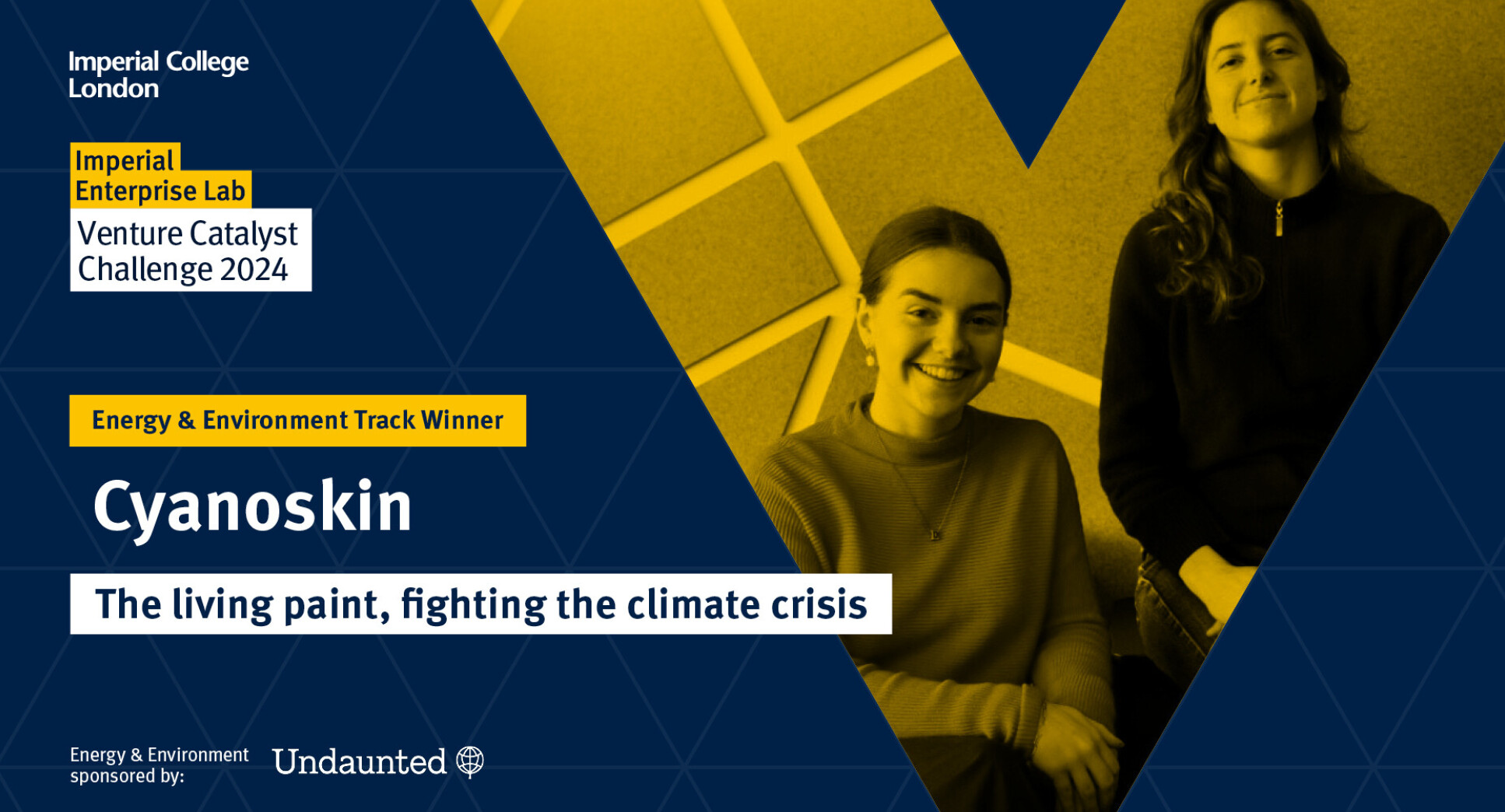
Health & Wellbeing (sponsored by Novartis): Neubond
Neubond has developed wearable devices for stroke mobility rehabilitation that autonomously deliver therapy during daily activities, making it easier for people to get the maximum exposure to recommended daily therapy. The devices operate discreetly in the background, allowing for use at anytime and anywhere.
Led by co-founders Jumpei Kashiwakura and Patrick Sagastegui Alva, the team hopes to improve the lives of people with impaired motor function by providing devices that can be seamlessly integrated into daily routines.
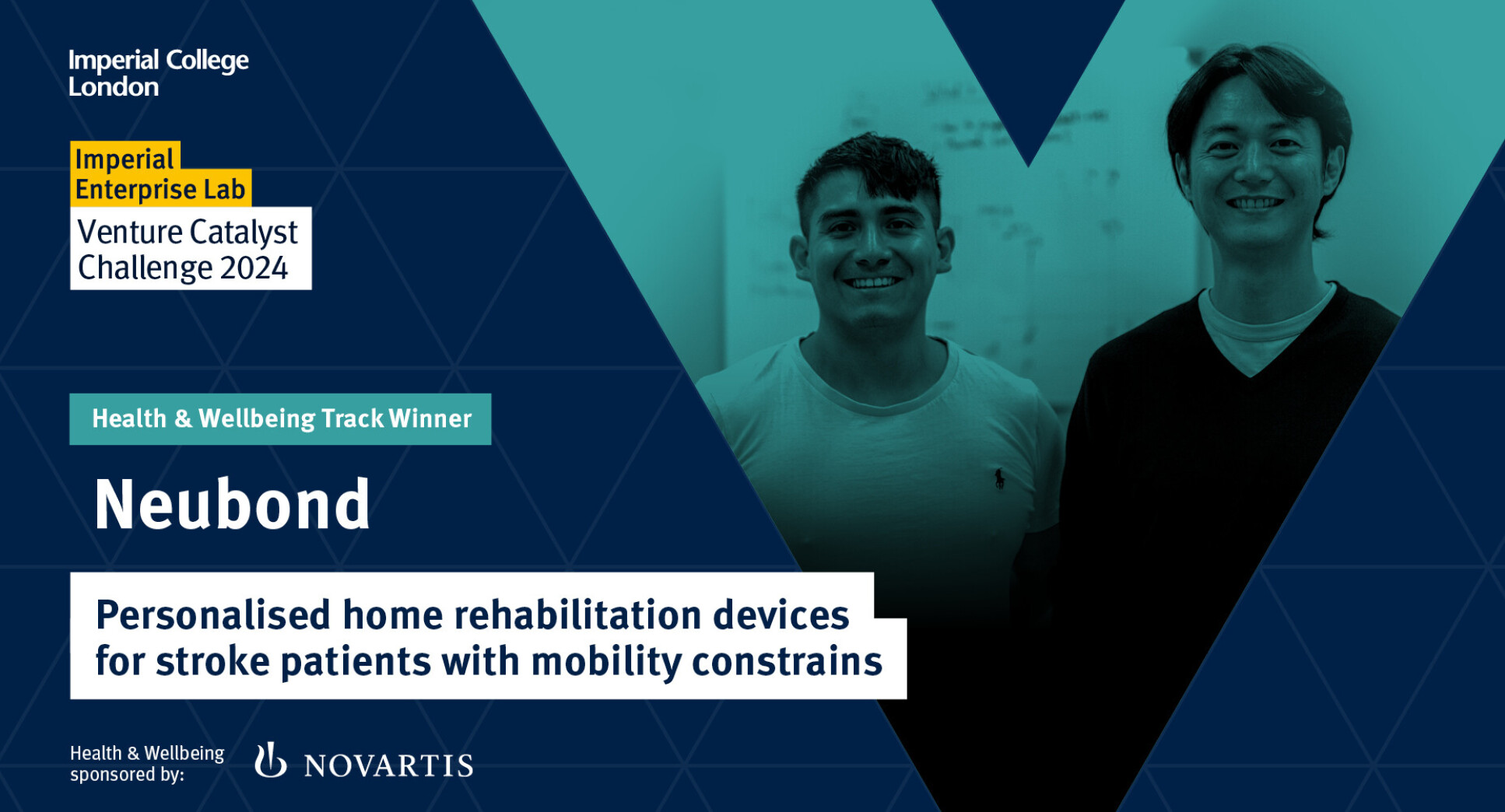
You can learn more about the Venture Catalyst Challenge 2024 on the Imperial Enterprise Lab website: https://www.imperialenterpriselab.com/programmes/vcc/
Article text (excluding photos or graphics) © Imperial College London.
Photos and graphics subject to third party copyright used with permission or © Imperial College London.
Reporter
Conrad Duncan
Communications Division